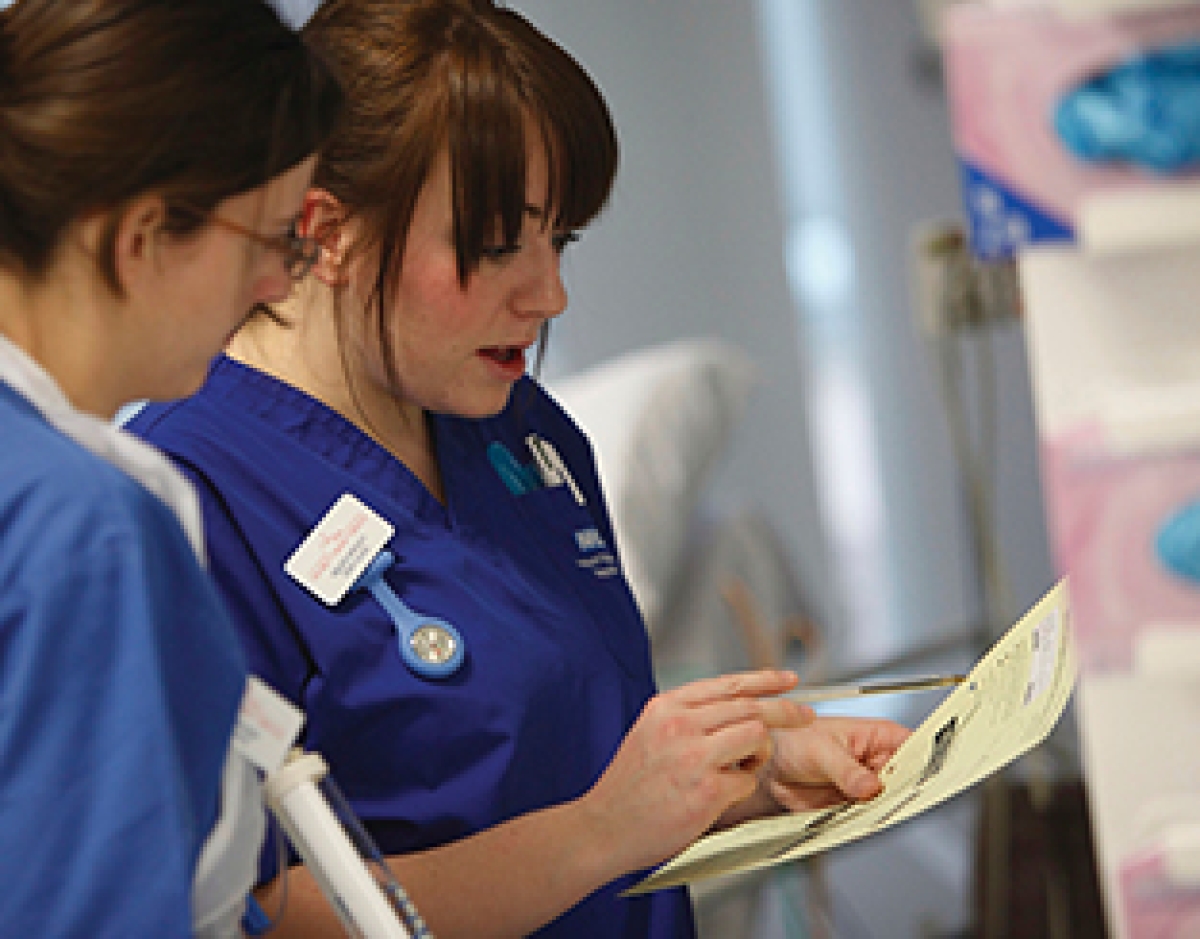
Last year my colleagues Phil and Laura talked about their respective roles in the coding team. My role as a senior consultant is a little different; I work with trusts, commissioners and private providers to ensure their data is an accurate reflection of the care they deliver, thus making it fit for its many uses, including payment.
When I was younger I actually wanted to be a doctor. Unfortunately, my academic career took a different path, but when I was looking for a job after leaving university a role as a clinical coder was advertised at a nearby hospital and I jumped at it purely because it was medical related. I loved being a coder, and working in informatics in the NHS, and by the end of my time in the NHS I was running an information department at an acute trust.
Working for the NHS is hugely rewarding but after 15 years (and several grey hairs) I decided I wanted to do something different that helped the NHS more broadly. I am now a senior consultant at CHKS using my experience to support a wide range of different healthcare organisations, looking at many different subjects, all related to NHS data quality. Recently I have reviewed at how trusts manage and report their assessment units, how neonatal activity is charged for, and the processes private hospitals have in place to charge for NHS activity.
Whilst I’m kept very busy it’s both varied and flexible and that’s what I like about the job. When I’m not travelling to hospitals doing on site work, I’m working from home - preparing or writing up reports. You are often working with other consultants and so you are not on your own. My work life balance has definitely improved; as I have a four-year-old daughter one of the most important things is that I am now home more often to read her that all important bed time story!
The main focus of my work is reviewing care delivered to ensure the way it has been recorded and reported fits with national guidance and local expectations. This will involve conducting interviews with staff (both clinical and non-clinical) asking about how the processes and patient care work in practice. I will also review sets of case notes to support these discussions. At the end, I feedback findings and make recommendations on how the organisation can improve the way it does things.
Because of the nature of our work we often get involved in disagreements between commissioners and providers about data quality and we pride ourselves on providing a fair and independent view.
I’ve also worked with trusts and CCGs where the relationship is really good - these are the most rewarding pieces of work to deliver. You feel you are really making a difference and helping them to improve the quality of their data and the care they deliver. It’s not just about saving money; as one clinician, I worked with said: safe care is efficient care.
We always talk to clinicians when we review data quality; this helps us to get a clear understanding of how the care is delivered to ensure this is accurately recorded. I have learnt at CHKS that when you see good clinical engagement, with clinical ownership of data and strong reporting mechanisms, you find fewer issues with data and more accurate funding for that care.
However, engagement is still very variable across the country. Some clinicians are hugely involved in their own data yet others are in the dark about how it is recorded and coded. Our input often helps clinicians to understand data and payment and sometimes help to start the debate about getting clinicians involved.
One week I may be talking to an emergency consultant about ambulatory care developments and how this fits with national tariff, the next week it could be discussing with an obstetrician what a Teflon coated kidney is and if that constitutes renal disease for maternity pathways payments. These types of discussions together with reviewing lots of case notes certainly does satisfy that aspiring doctor in me!
Last year my colleagues Phil and Laura talked about their respective roles in the coding team and here, I share more about how my role as a senior consultant is a little different in a day in the life of... an NHS data quality consultant.
 Last year my colleagues Phil and Laura talked about their respective roles in the coding team. My role as a senior consultant is a little different; I work with trusts, commissioners and private providers to ensure their data is an accurate reflection of the care they deliver, thus making it fit for its many uses, including payment.
Last year my colleagues Phil and Laura talked about their respective roles in the coding team. My role as a senior consultant is a little different; I work with trusts, commissioners and private providers to ensure their data is an accurate reflection of the care they deliver, thus making it fit for its many uses, including payment.